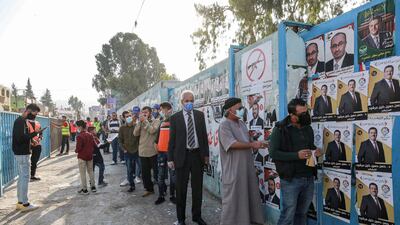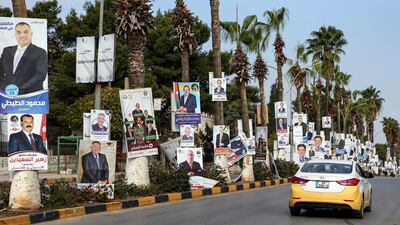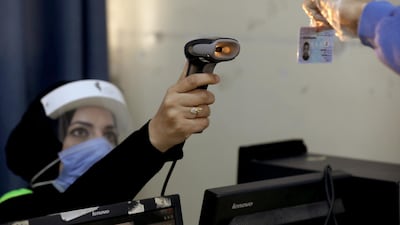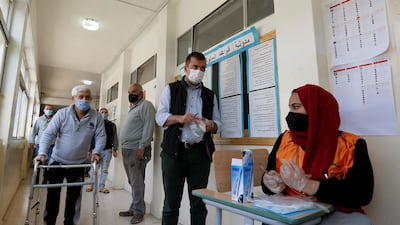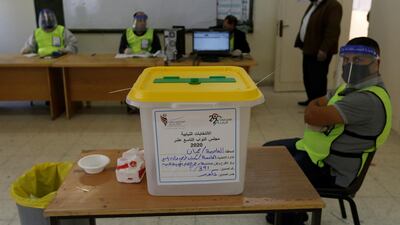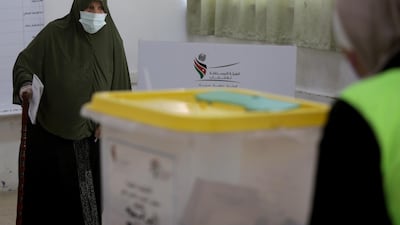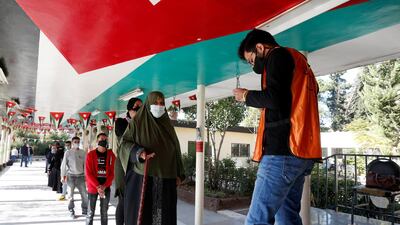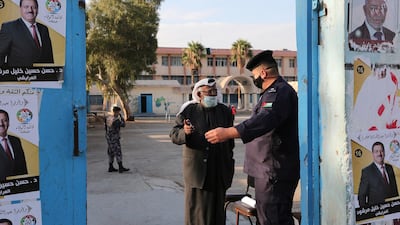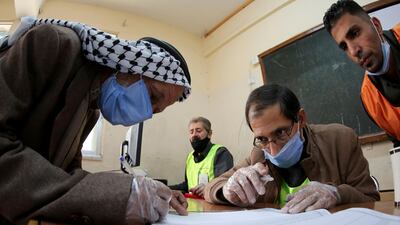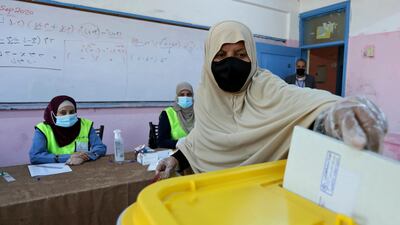Initial election results unveiled on Wednesday revealed that Jordanians elected 100 new MPs, the day after apathy in both parliament and the electoral process saw record-low turnout across the country.
Incumbents, political parties and businessmen suffered heavy losses as initial results showed Jordanians electing a new parliament heavily made-up of tribal and independent candidates, with only 30 out of 130 MPs returning.
Amid Covid-19 fears and general frustration with parliament itself, the elections saw a 29.9 per cent turnout, as 1.38 million Jordanians cast ballots – the lowest turnout for a parliamentary election in Jordan’s history.
Former ministers and well-known political figures also lost in the polls that saw a desire for change but a lack of appetite for political parties.
According to initial results released on Wednesday afternoon, only 16 per cent of incoming MPs will be members of political parties, one of the smallest political party representations since the end of martial law and the resumption of political life in the kingdom in 1989.
One of the biggest losers was the Islah coalition of Islamists, nationalists, independents and minorities backed by the Muslim Brotherhood. The list lost nine seats, finding its representation reduced from 15 seats to a mere six MPs in the incoming parliament.
Despite a record 364 female candidates, women also lost big in this election.
For the first time in a decade, not a single woman won a seat outside the 15-seat quota, compared to 2016, which saw 5 women win in direct competition.
Women’s representation in the Jordanian parliament has now dropped from 15.3 per cent to 11.5 per cent. Women’s rights activists attribute the drop to a 2016 electoral law that, they say, places women and non-tribal candidates at a disadvantage.
Leftists and nationalists also suffered a drubbing, with the nationalist-leftist coalition list failing to win a single seat in parliament.
The party with the best turnout was the Islamic Centrist Party, a grouping of religiously conservative MPs that are supportive of the government’s agenda and the palace, which secured between six to eight seats according to initial results.
Despite a nationwide lockdown going into effect at 11pm, celebrations by candidates and dozens of their supporters outside the capital continued late into the night, crowding the main streets well into the early morning.
Later in the day on Wednesday, the brazen celebrations continued, with candidates hosting large gatherings of hundreds in both southern and northern Jordan, despite a full lockdown that kept the vast majority of citizens in their homes.
Others reportedly formed motorcades and honked their horns in celebration in the towns of Irbid, Mafraq and Maan. Video footage of the celebrations triggered outrage and condemnation by Jordanians stuck in their homes and observing the four-day full curfew, which is to last until Sunday morning.
The celebrations – which the national lockdown aimed to prevent – come as Jordan continues to grapple with its worst Covid-19 surge and among the highest daily caseload in the region, recording a record 91 deaths and 5,996 cases on Tuesday evening.
Jordanian election watchdog RASED recorded 1,280 violations and infractions during the election, the vast majority pertaining to vote-buying and dark money swaying voters.
Half of voters were under the age of 40, a sign that older voters may have been discouraged from going to the polls due to the virus.
Observers believe the lockdown itself may have also affected turnout, as citizens prioritised battling hours-long traffic jams to get food and basic items for the four-day lockdown.

